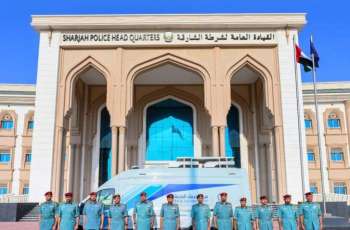JOHANNESBURG (Pakistan Point News / Sputnik - 11th March, 2021) As Senegal has been gripped by protests for a week now, experts link them not just to anger at an opposition politician's arrest, but also pandemic-driven fatigue over socioeconomic inequalities and the leadership's perceived heavy-handedness in dealing with opponents.
Unrest in Senegal, which is widely considered to be one of the most stable countries in Africa, broke out last week after opposition figure Ousmane Sonko was detained over violating a coronavirus-linked ban on gatherings and creating traffic disturbances during unauthorized rallies. The 46-year-old was detained while he was on his way to the court for questioning on rape allegations, which he dismisses as politically motivated.
On Monday, Sonko was charged with rape and released on bail. He is now calling for continued protests.
The unrest in the country has already claimed at least eight lives and led to acts of arson, vandalism and looting.
Reports also say two independent tv stations were suspended for three days for broadcasting the protests live. Other platforms and online media have also been affected.
Africa Analyst and Senior Research Fellow at University of Johannesburg Koffi Kouakou told Sputnik that Senegal, which is one of few African countries to have never experienced a coup, is actually suffering from the same socioeconomic woes that other nations in the region.
"It is the first country in West Africa that has not experienced a coup and has a good democratic system. And there is a lot of superficial reporting on the riots. A lot is not touched like structural reform. Women and Young people in Senegal are facing what most young people are facing in South Africa and elsewhere in Africa. In Senegal the rich are getting richer and the poor are getting poorer," Kouakou said.
According to the University of Johannesburg senior fellow, there are three key issues of which the government of Senegal remains aloof. These are increasing poverty, inequality and unemployment.
"These are structural issue. Why democracy in a country such as Senegal is still not dealing with these problems? People in West Africa, have been pushed to years of migration in France and Europe, at some point many Senegalese went to the United States and it led to the consequential migration issue to countries like Russia and China," Kouakou said.
The expert partially blamed economic woes on France's policy of holding its former colonies in "economic slavery."
"Eight big companies are owned by the French in Senegal, Ivory Coast, Gabon, Cameroon and so forth. It is a difficult conversation we are not having; making people feel like it is an anti-French topic. The economic systems in the 14 countries called French colonies are held by top French companies and are not creating jobs. They are subservient, depend largely on France. Countries like Saudi Arabia and Qatar, Russia, China and the United States have started coming in Senegal and are fishing there and the ordinary fishermen in the country is now suffering," Kouakou stated.
The pandemic has only exacerbated the economic woes, exposing the existing governance and economic fragility and triggering dismay of the youth.
"I think the once very peaceful Senegal is particularly notable in this respect. Grinding poverty and hardship layered on top the lengthy Covid-19 related curfews have provoked widespread anger. All of these are served as a lightning rod to the anger of many youth protesting the opposition leader Ousmane Sonko's arrest. Domestically, anger has been building up against the incumbent president Macky Sall's government over alleged intimidation of the political opposition ahead of elections in 2024, perceived corruption, as well as youth unemployment and other unresolved challenges in society," Director at Nigeria-based Good Africa Governance Dr. Ola Bello told Sputnik.
RUMOURS AROUND 3RD PRESIDENTIAL TERM
Politics has also played its role.
"[Incumbent President Macky] Sall himself was a one-time darling street protester when he successfully challenged the excesses of his predecessor president Abdullahi Wade, the incumbent Sall truly saw his honeymoon with the public come to an end when news broke of multi billion Dollars corrupt deals involving his younger brother in Senegal's emerging oil industry," Bello said.
Another problem is that Sall, who has been in power since 2012, has not publicly declared that he will not attempt to change the constitution to run for a third term in 2024.
"This is fueling the suspicion on the street that he simply wants to neutralize Mr Sonko [who came third in the 2019 race] of the opposition, in the same way that he did [with] two previous challengers. Abdul Karim Wade, the son of his predecessor, was in 2013, charged for corruption and ultimately forced into exile. Similarly, the former mayor of Dakar, Khalifa Sall, was charged for corruption in 2017 and only pardoned following the 2019 elections in which the current incumbent secured his second term," Bello continued.
Lawver Sipho Mantula of the Thabo Mbeki African school of Public and International Affairs in South Africa agrees that Sall's governance and leadership style appears to have reached the boiling point of power obsession and domination in the eyes of protesters.
"The young in Senegal are demanding the release of political prisoners, reform of the criminal justice system amidst the criminal trial of the famous Member of Parliament Ousmane Sonko-the young people are recharged and angry with the political governance since the 2019 elections," Mantula said.
On the economic front, even if the president quells the current protests, he will still be confronted with the huge challenge of providing relief to millions of Senegalese who see their living standards falling.
"This being the result of the damaging economic pandemic left by Covid-19 in Senegal, as the rest of the African continent," Bello of the Nigeria-based nonprofit added.



